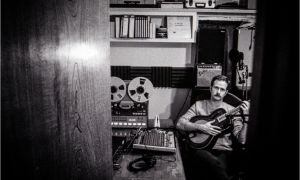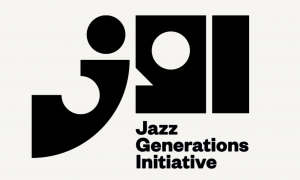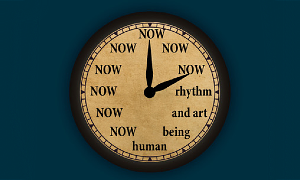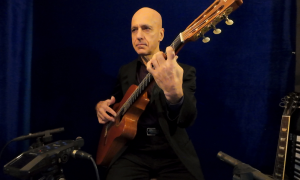If you want a song from the iTunes Store, you have to buy it, just like an iPod or iPhone. If you want a piece of vinyl, the same rules apply. Just like they do for CDs, which are responsible for tens of billions in revenue over the past decade.
And, Skullcandy headphones, concert tickets, Sonos systems, and trunk subwoofers. Even Sirius XM Radio, among the most successful subscription services across all entertainment sectors, offers only limited free listening windows.
All of which raises the question: is freemium really the way to make a music model float? Or, is it just more free stuff? The outcome is critical for companies like MOG and Rdio, both struggling to gain meaningful subscriber numbers while getting eclipsed by Spotify. And, for that matter, Pandora, whose stock is under pressure amidst profitability problems (among other issues).
At one point, Pandora founder Tim Westergren seemed to be giving up on premium subscription. And the memo for MOG, Rdio, and perhaps Rhapsody is loud-n-clear: if you want users, you have to 'bring down this wall.' MOG is now offering a complicated 'gas tank' of free that rewards engagement and tastemaking, and serves ads after a 60 day window. Rdio is planning to one-up that with a completely ad-free, payment-free service, though we're still learning details on that rollout. And in Europe, Deezer even battled Universal Music Group in court—and won—to preserve its more liberal free access tier.
Of course, free is actually quite expensive. Spotify is also casting a shadow on Deezer in Europe, though labels have been pushing both services to significantly limit the free ride. Ahead of the summer, that caused significant attrition among freebie Spotify users, but it may be causing significant gains in premium subscribers. And stateside, early subscriber numbers—with more limited handouts—are encouraging.
But the voices against free stuff remain convincing. Mark Cuban recently called YouTube a giant 'subsidization' by Google, with a sloppy business side-effect. By footing the bill on free baby clips and hairbrush-singing sessions, Google isn't doing the grinding, tough work on monetization—break-even claims notwithstanding.
Others feel the same way. Jammbox founder David McKinney, author of the successful (and paid) Discovr iPad app, told Digital Music News that “it's important to test a price point“ to get a sense for what real fans will pay. Smule, one of the most successful music-focused developers, typically applies the same thinking.
Perhaps there's room for more MOG-like experimentation, and smarter monetization levels in the middle. Disney-acquired Tapulous is one company that has made smart use of in-app ecommerce, and there may be more gradations to match fans' willingness to pay. “What's great about [the app] platform is that you can charge every user what they will pay," Tapulous head Bart Decrem told a crowd at SF MusicTech Summit back in '09.
And, Skullcandy headphones, concert tickets, Sonos systems, and trunk subwoofers. Even Sirius XM Radio, among the most successful subscription services across all entertainment sectors, offers only limited free listening windows.
All of which raises the question: is freemium really the way to make a music model float? Or, is it just more free stuff? The outcome is critical for companies like MOG and Rdio, both struggling to gain meaningful subscriber numbers while getting eclipsed by Spotify. And, for that matter, Pandora, whose stock is under pressure amidst profitability problems (among other issues).
At one point, Pandora founder Tim Westergren seemed to be giving up on premium subscription. And the memo for MOG, Rdio, and perhaps Rhapsody is loud-n-clear: if you want users, you have to 'bring down this wall.' MOG is now offering a complicated 'gas tank' of free that rewards engagement and tastemaking, and serves ads after a 60 day window. Rdio is planning to one-up that with a completely ad-free, payment-free service, though we're still learning details on that rollout. And in Europe, Deezer even battled Universal Music Group in court—and won—to preserve its more liberal free access tier.
Of course, free is actually quite expensive. Spotify is also casting a shadow on Deezer in Europe, though labels have been pushing both services to significantly limit the free ride. Ahead of the summer, that caused significant attrition among freebie Spotify users, but it may be causing significant gains in premium subscribers. And stateside, early subscriber numbers—with more limited handouts—are encouraging.
But the voices against free stuff remain convincing. Mark Cuban recently called YouTube a giant 'subsidization' by Google, with a sloppy business side-effect. By footing the bill on free baby clips and hairbrush-singing sessions, Google isn't doing the grinding, tough work on monetization—break-even claims notwithstanding.
Others feel the same way. Jammbox founder David McKinney, author of the successful (and paid) Discovr iPad app, told Digital Music News that “it's important to test a price point“ to get a sense for what real fans will pay. Smule, one of the most successful music-focused developers, typically applies the same thinking.
Perhaps there's room for more MOG-like experimentation, and smarter monetization levels in the middle. Disney-acquired Tapulous is one company that has made smart use of in-app ecommerce, and there may be more gradations to match fans' willingness to pay. “What's great about [the app] platform is that you can charge every user what they will pay," Tapulous head Bart Decrem told a crowd at SF MusicTech Summit back in '09.


























